
http://www.chriswblair.com
Our findings suggest growing pressure on Iran could result in another wave of mass Afghan repatriation, further destabilizing Afghanistan.

Our findings suggest growing pressure on Iran could result in another wave of mass Afghan repatriation, further destabilizing Afghanistan.
Several European countries are contemplating forcibly repatriating Syrian refugees. Achieving Syrian returns by restricting hosting conditions for Syrian refugees may exacerbate instability in Syrian areas that receive returnees from Europe.
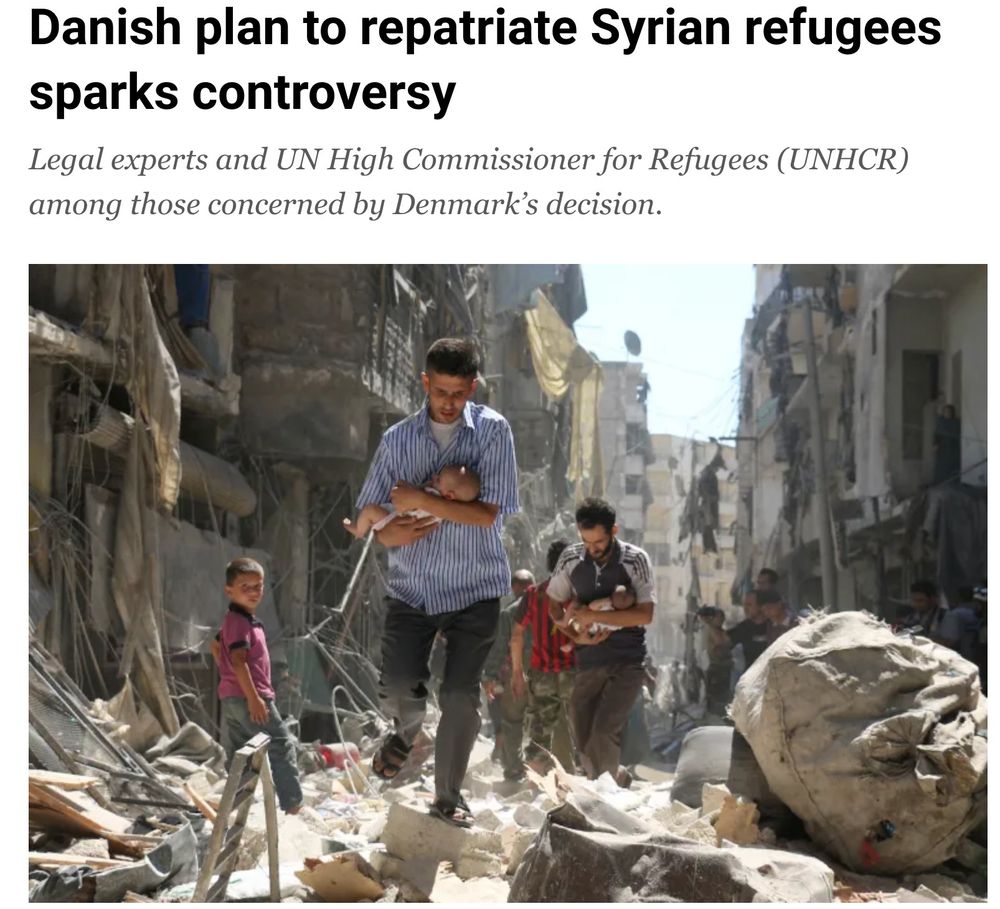
Several European countries are contemplating forcibly repatriating Syrian refugees. Achieving Syrian returns by restricting hosting conditions for Syrian refugees may exacerbate instability in Syrian areas that receive returnees from Europe.
Another possibility is that strong local institutions in returnee-receiving areas mitigated conflict.
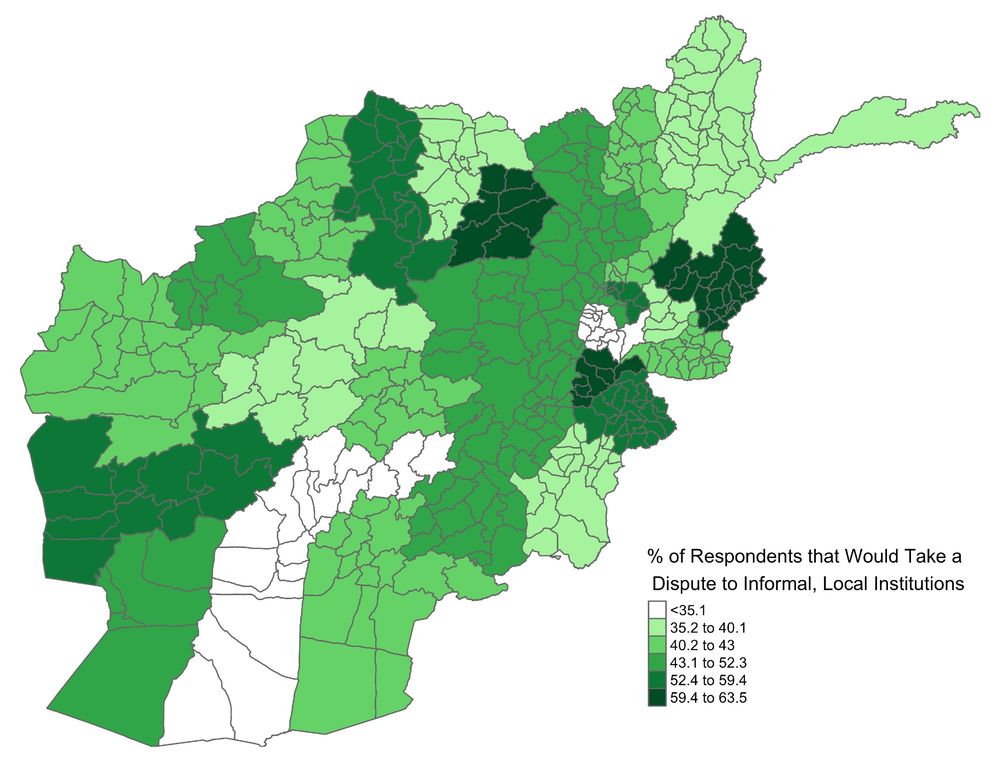
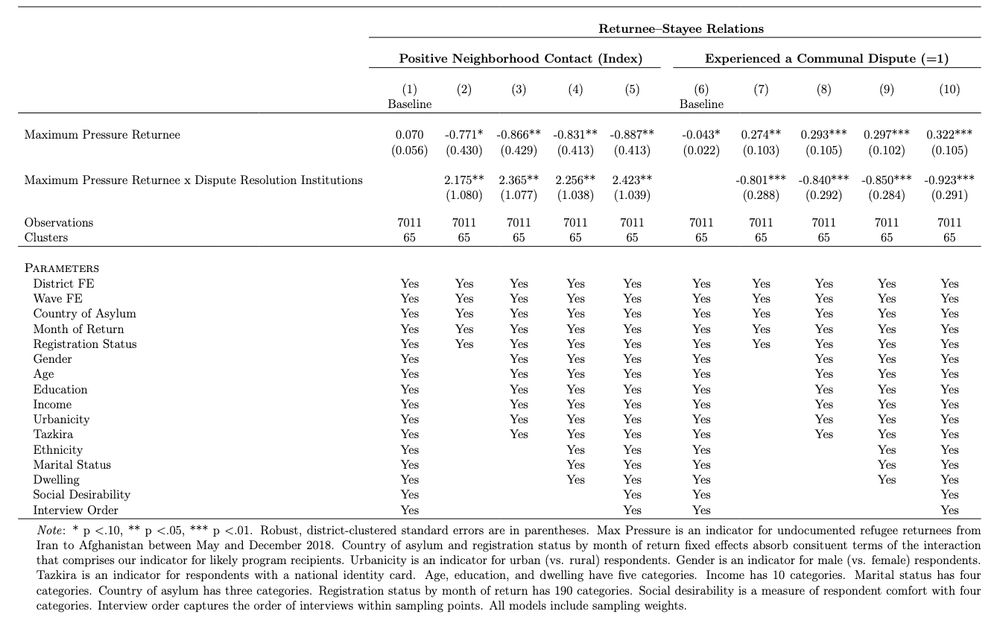
Another possibility is that strong local institutions in returnee-receiving areas mitigated conflict.
Much prior evidence suggests mass repatriation increases communal disputes and local feuds.
To our surprise, we find no evidence that return was associated with ⬆️ communal conflict in this setting. If anything, returnees reported better relations.
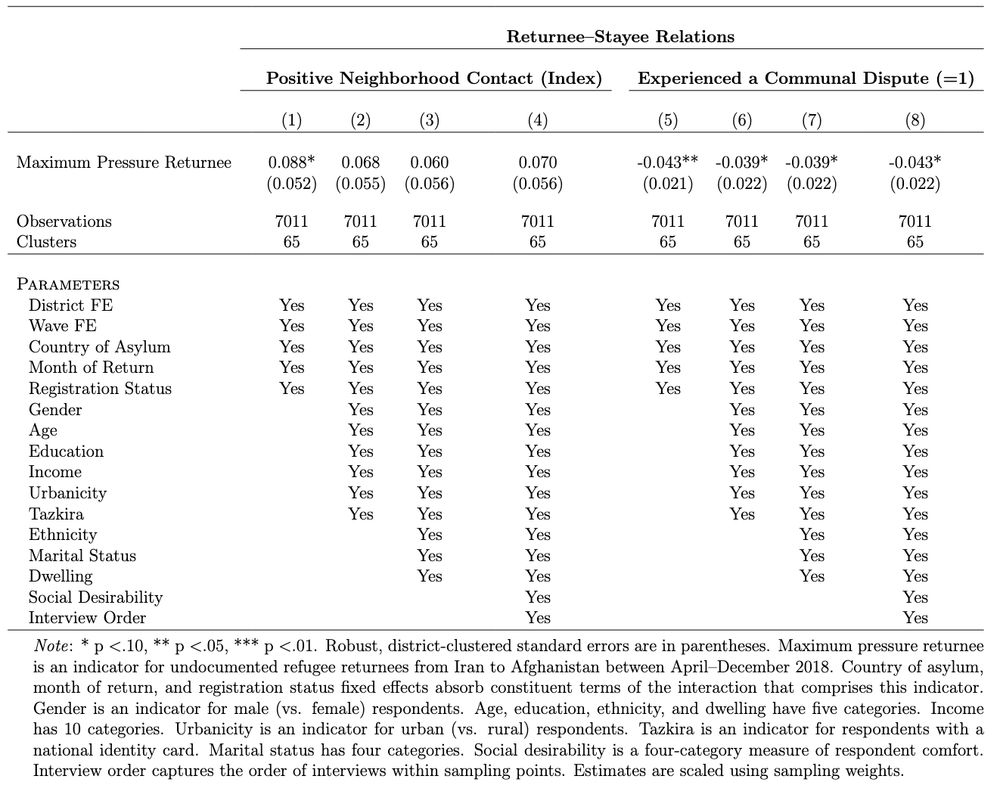
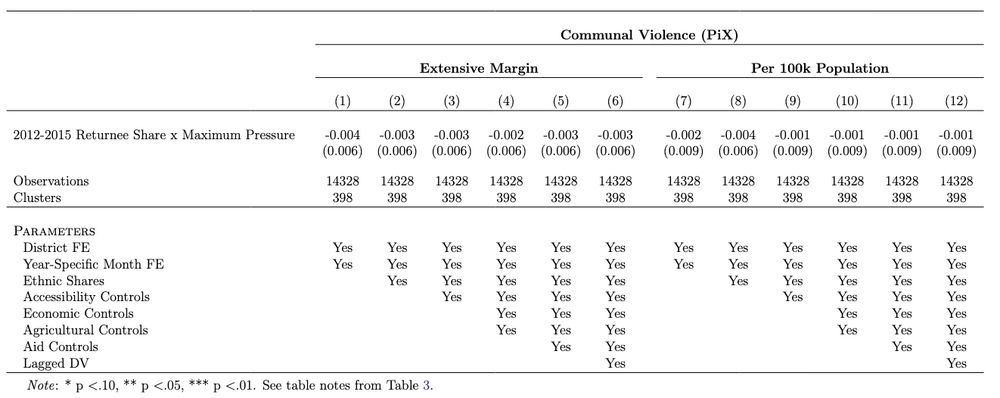
Much prior evidence suggests mass repatriation increases communal disputes and local feuds.
To our surprise, we find no evidence that return was associated with ⬆️ communal conflict in this setting. If anything, returnees reported better relations.
Violence during the Max Pressure period ⬆️ disproportionately in returnee-receiving communities linked to Iran-backed Taliban cells
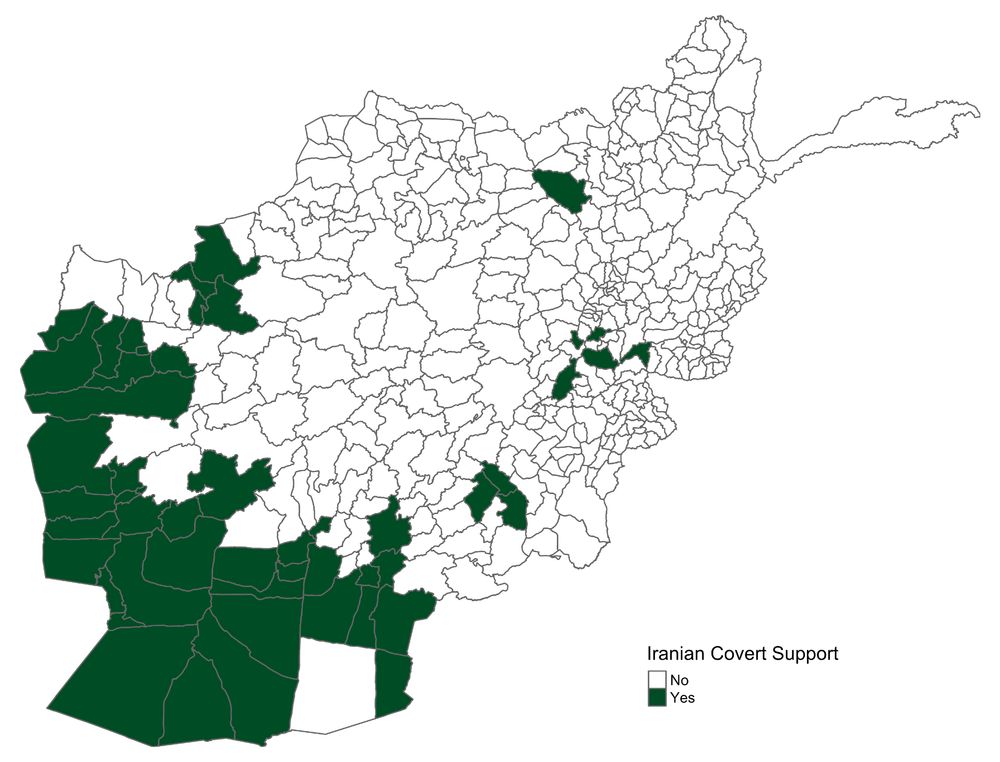
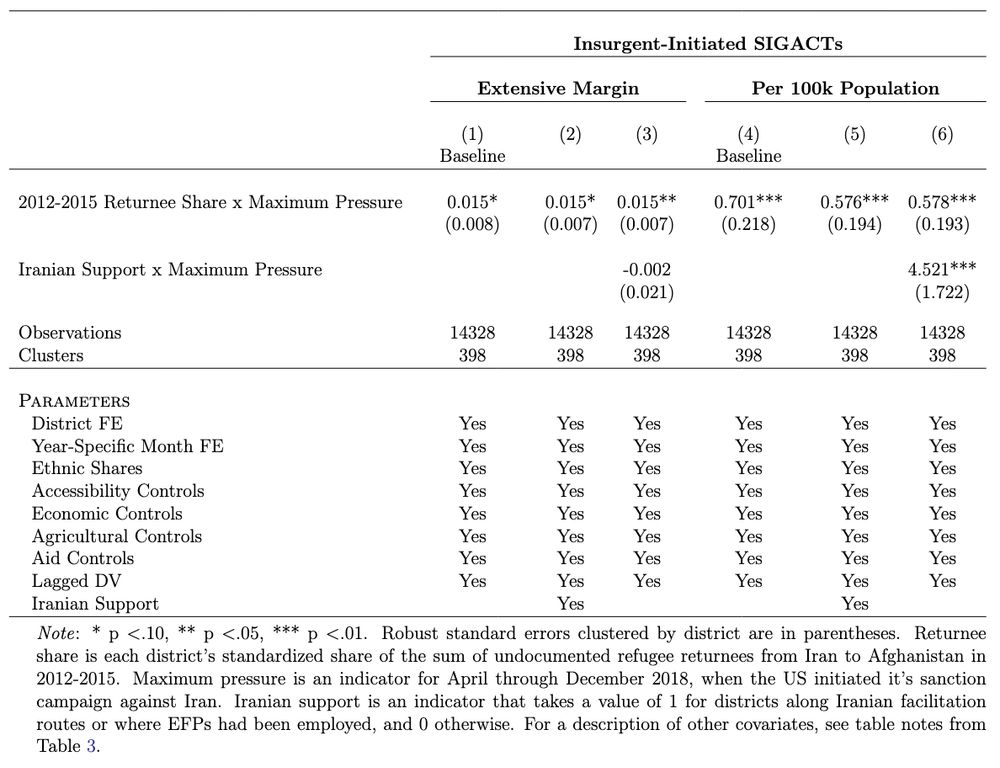
Violence during the Max Pressure period ⬆️ disproportionately in returnee-receiving communities linked to Iran-backed Taliban cells
But: tactical shifts are suggestive. Insurgents flush with recruits can pull off riskier and deadlier ops using labor-intensive tactics (e.g., complex attacks) that require large teams of perps to conduct.
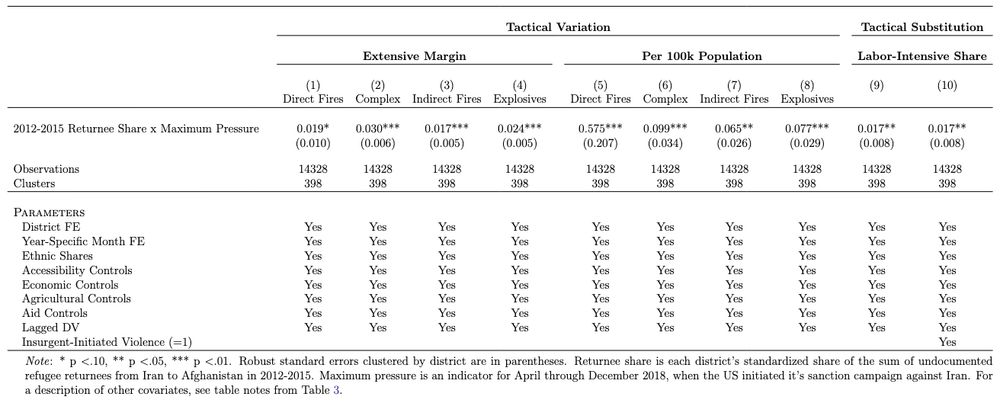
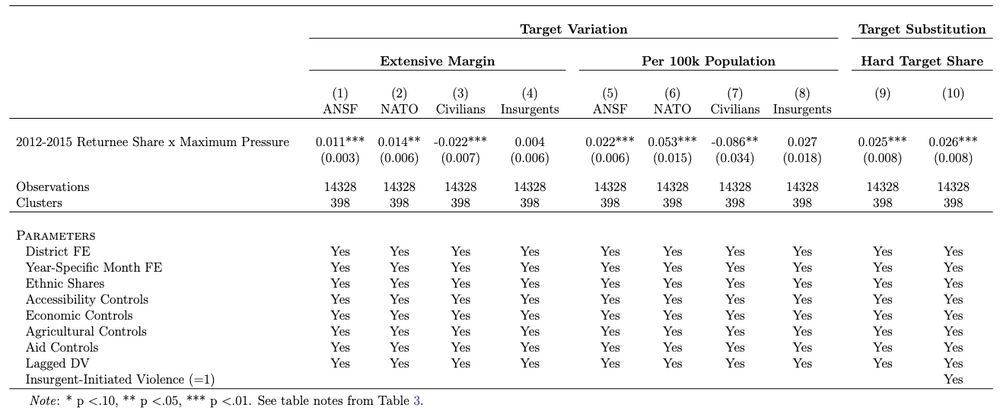
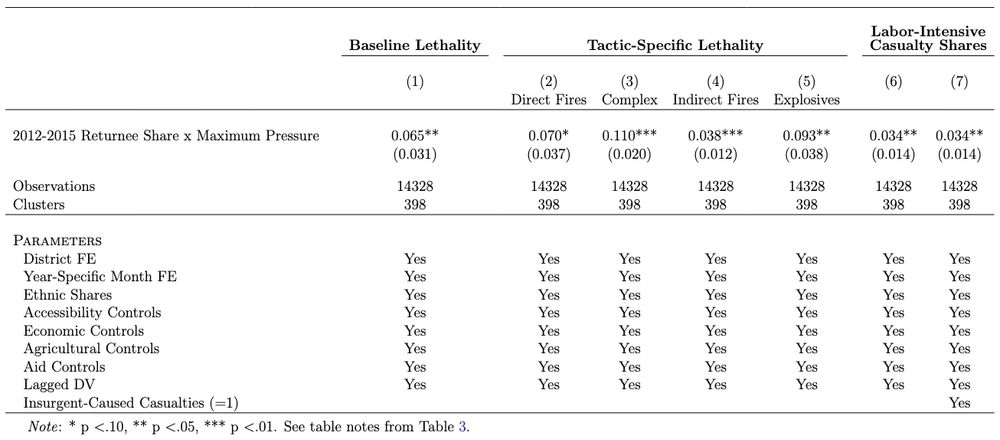
But: tactical shifts are suggestive. Insurgents flush with recruits can pull off riskier and deadlier ops using labor-intensive tactics (e.g., complex attacks) that require large teams of perps to conduct.
In returnee-receiving communities, there was ⬆️ unemployment, ⬇️ economic perceptions, and ⬇️ consumption (as measured by nighttime luminosity)
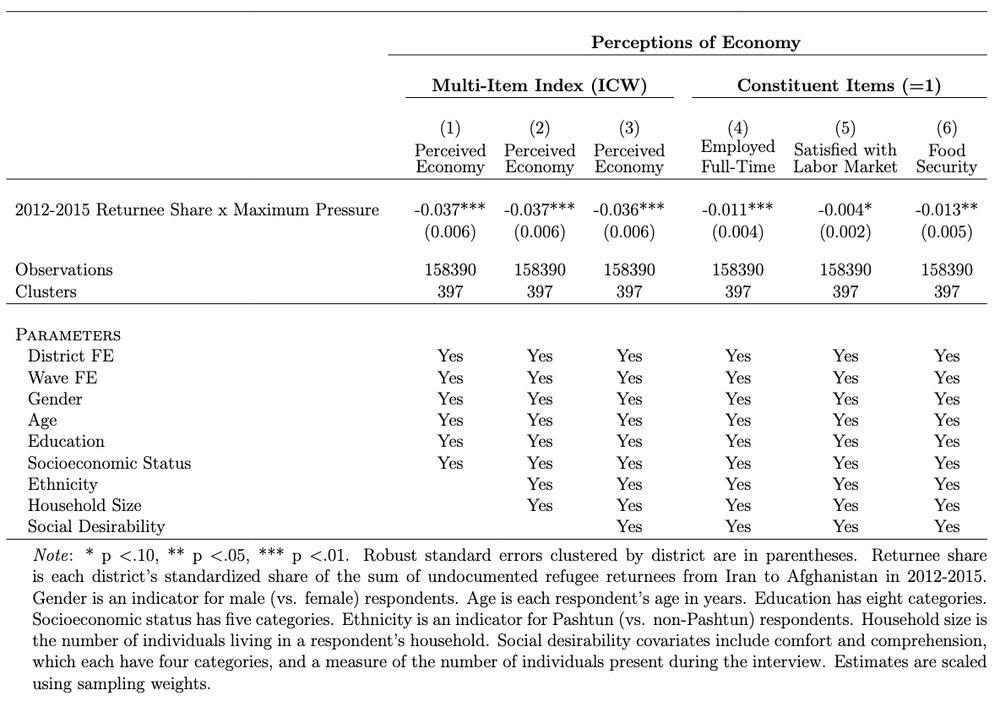
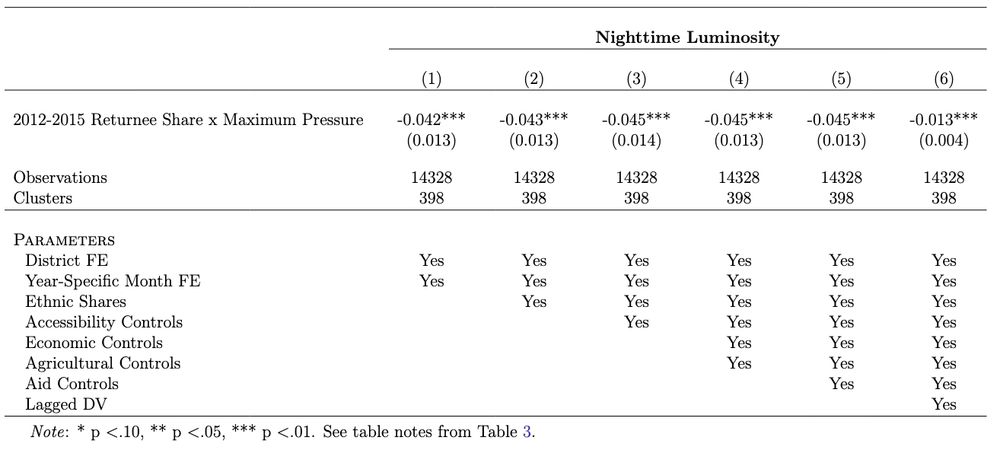
In returnee-receiving communities, there was ⬆️ unemployment, ⬇️ economic perceptions, and ⬇️ consumption (as measured by nighttime luminosity)

Militant violence ⬆️ drastically -- 2018 ended up as the single deadliest year of the conflict in Afghanistan from 2001-2021
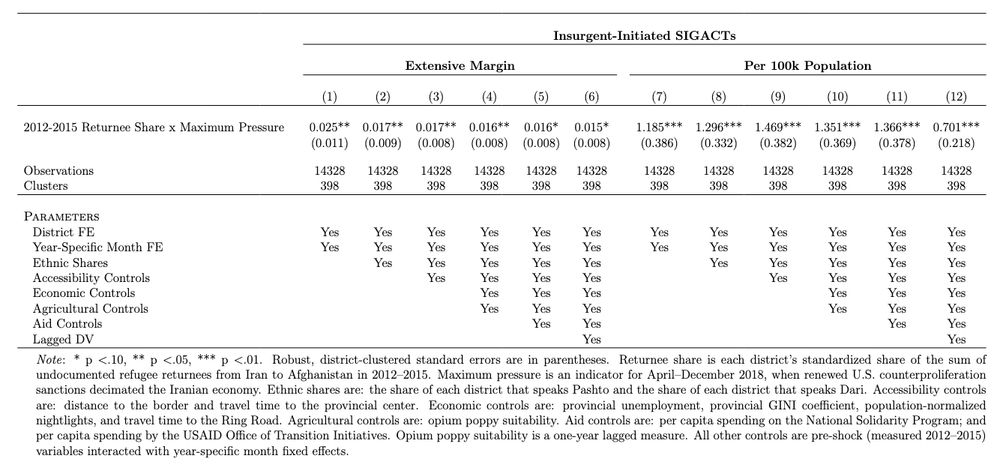
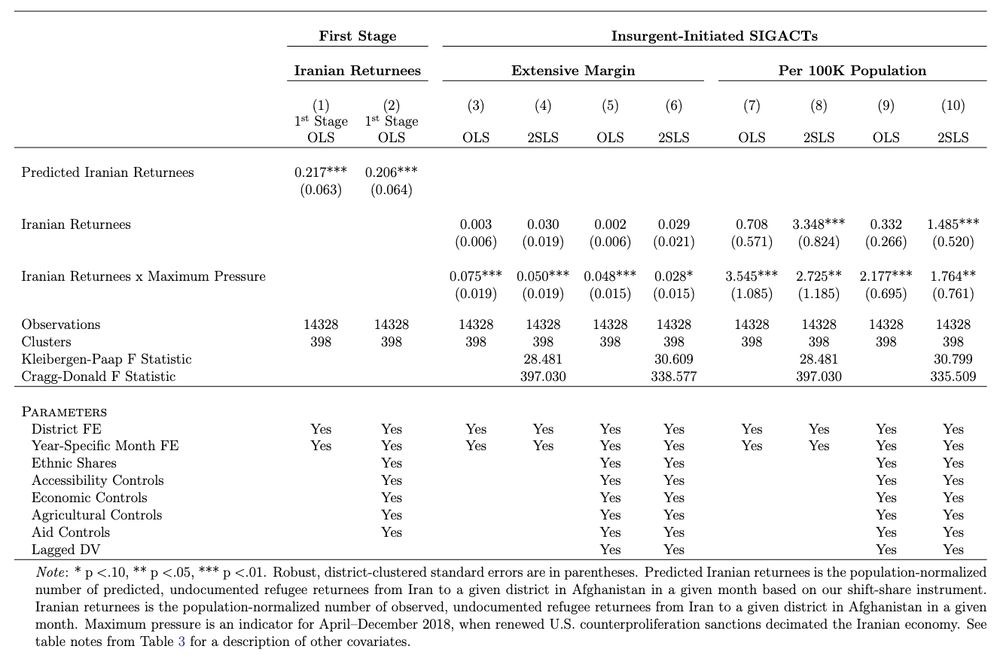
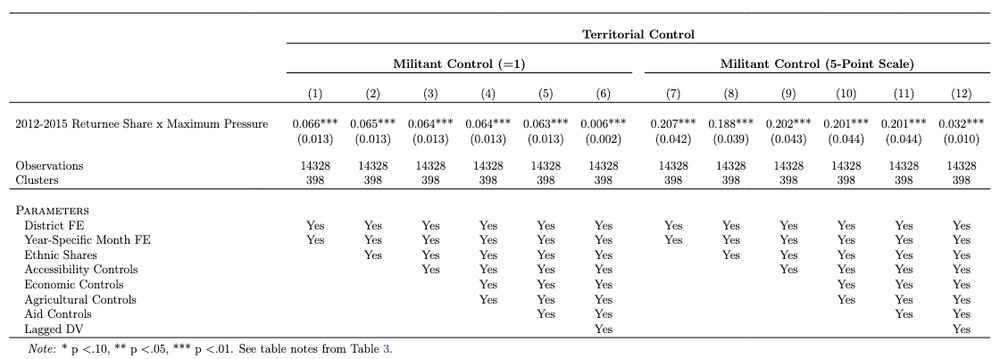
Militant violence ⬆️ drastically -- 2018 ended up as the single deadliest year of the conflict in Afghanistan from 2001-2021
Combining geographic variation in exposure to returns and exogenous time-series variation coming from the sanctions policy shock we estimate:

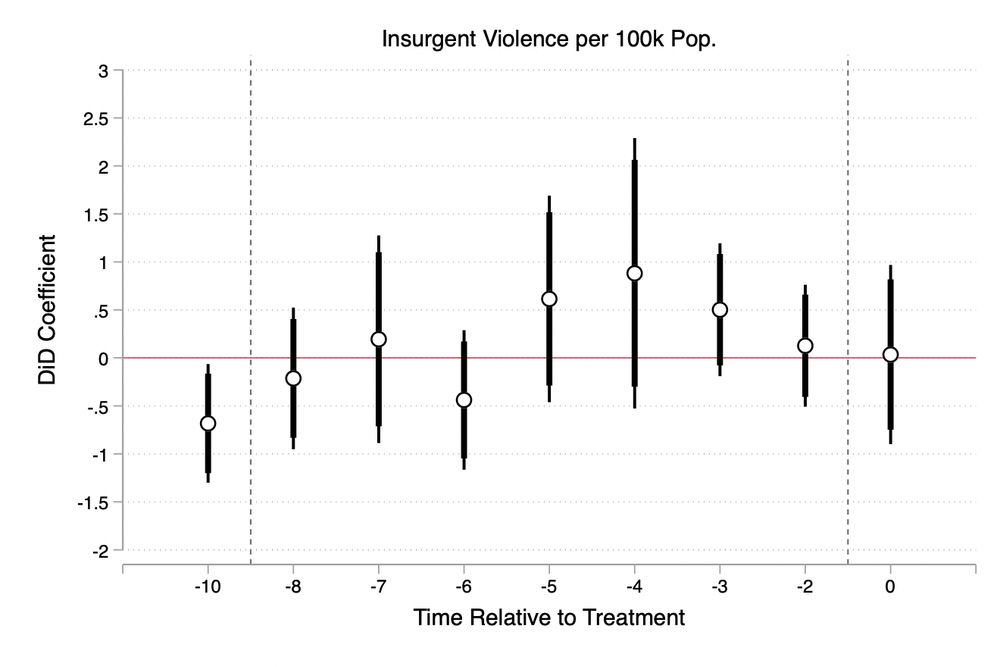
Combining geographic variation in exposure to returns and exogenous time-series variation coming from the sanctions policy shock we estimate:
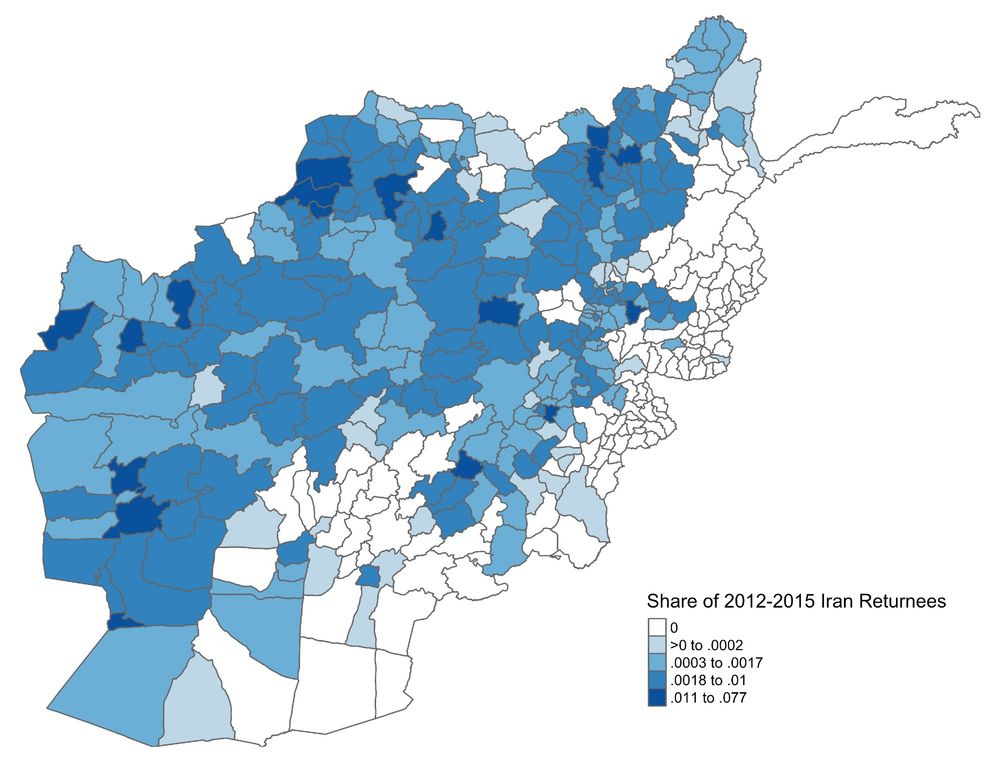
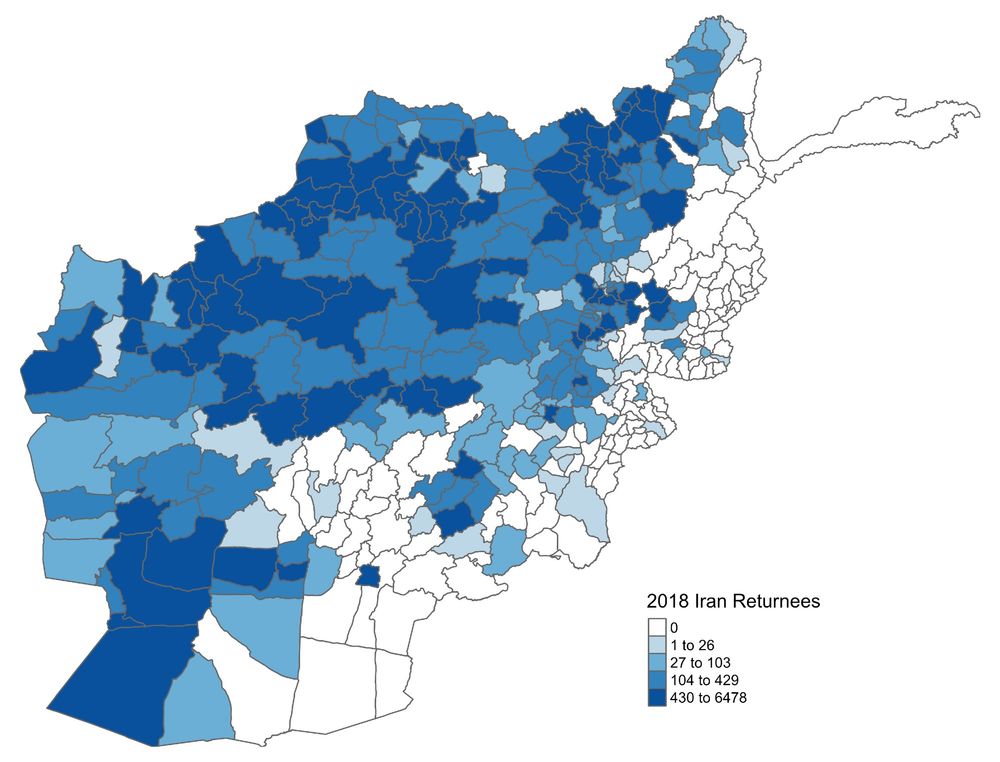
Critically, the pressure campaign escalated at the start of the Afghan fighting season, when the Taliban recruits for the summer offensive.
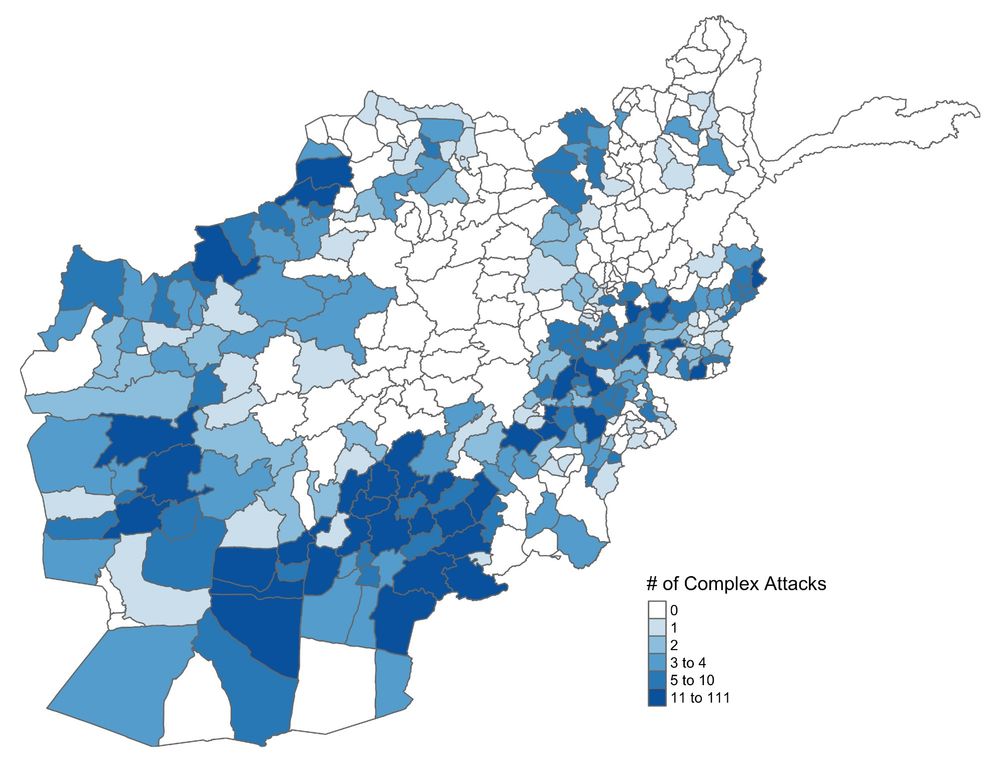
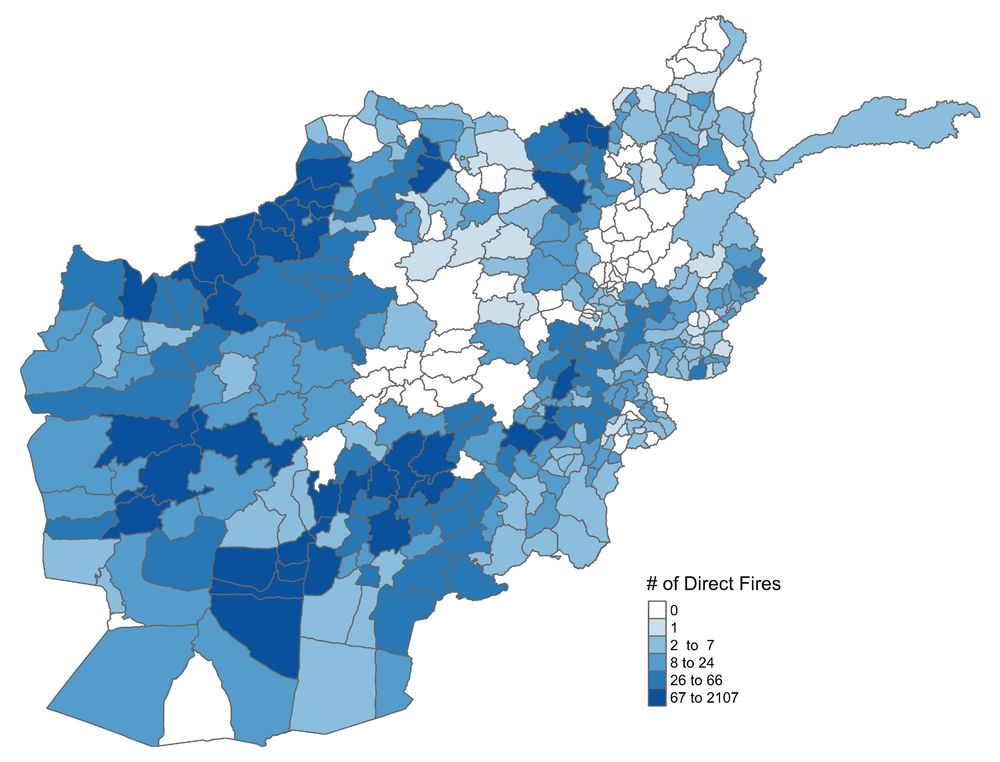
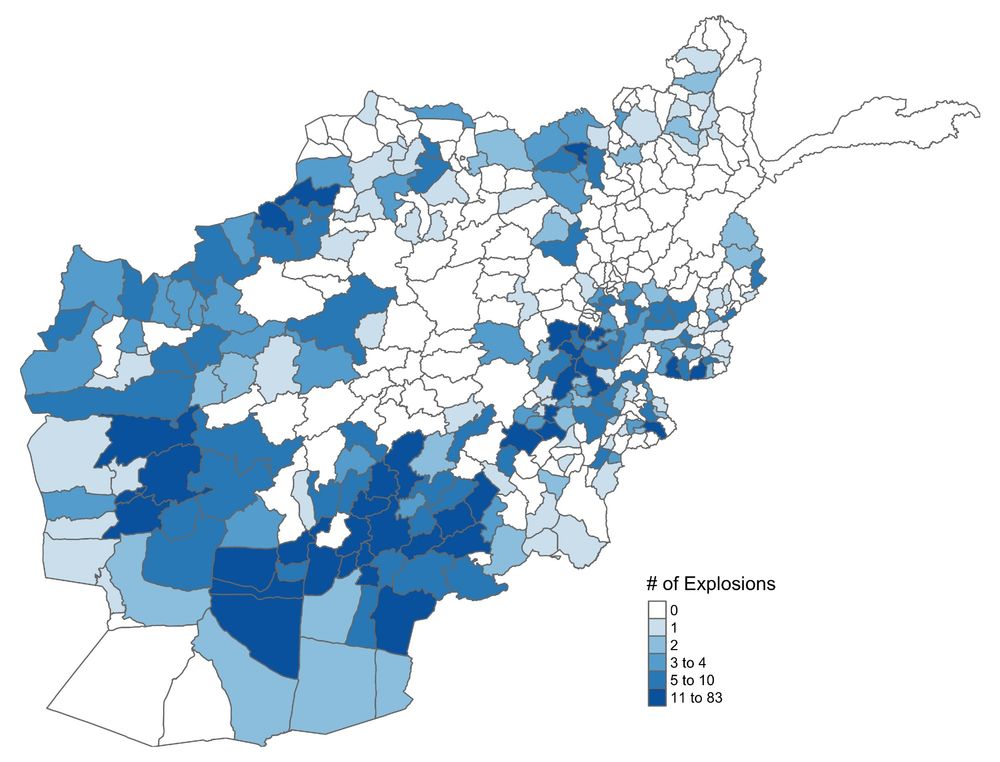
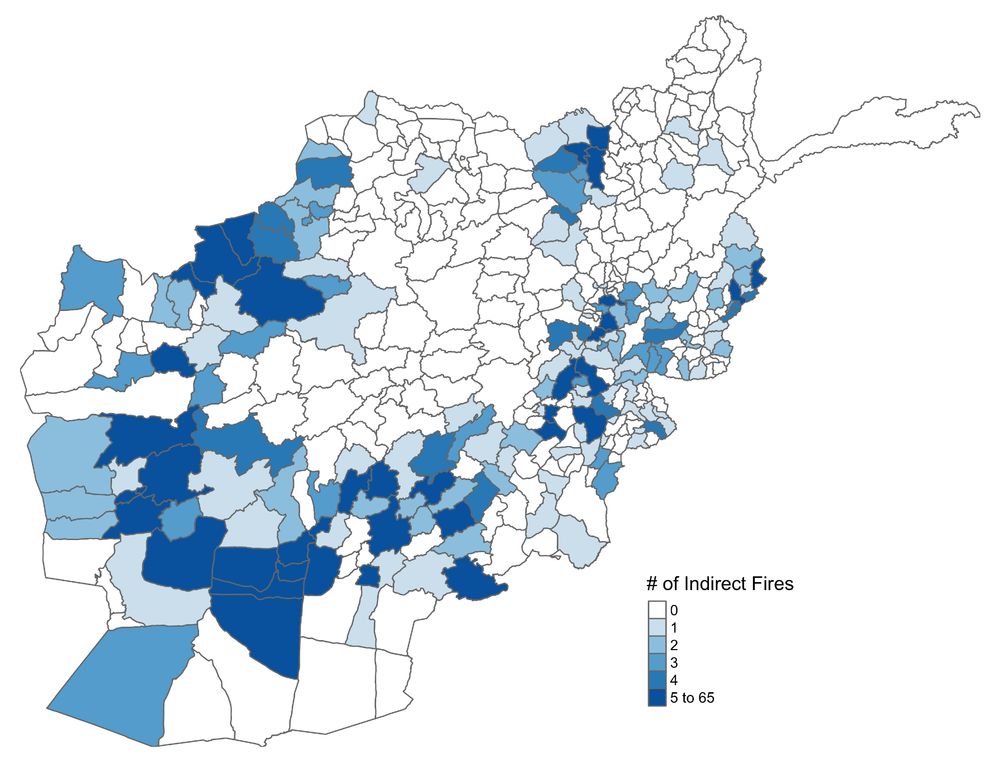
Critically, the pressure campaign escalated at the start of the Afghan fighting season, when the Taliban recruits for the summer offensive.
and Expenditure Survey show Afghan migrants in Iran reported ⬆️ unemployment, ⬇️ gross income, wage rate, hours worked during the Max Pressure period.
In a survey of returnees, Afghans report leaving precisely b/c of negative economy in Iran



and Expenditure Survey show Afghan migrants in Iran reported ⬆️ unemployment, ⬇️ gross income, wage rate, hours worked during the Max Pressure period.
In a survey of returnees, Afghans report leaving precisely b/c of negative economy in Iran
Currency depreciation disproportionately affected Afghans in Iran.
Unintended consequence: 618,000+ Afghans repatriated from Iran


Currency depreciation disproportionately affected Afghans in Iran.
Unintended consequence: 618,000+ Afghans repatriated from Iran
After pulling out of the Iran nuclear deal (JCPOA), the admin leveled sweeping counterproliferation sanctions on Iran, decimating the Iranian economy.




After pulling out of the Iran nuclear deal (JCPOA), the admin leveled sweeping counterproliferation sanctions on Iran, decimating the Iranian economy.
We specifically argue that refugees repatriating b/c of negative conditions in a host country are likely to lack econ and social resources needed for reintegration. This increases conflict risks

We specifically argue that refugees repatriating b/c of negative conditions in a host country are likely to lack econ and social resources needed for reintegration. This increases conflict risks
Often, refugees have no choice. If anti-refugee policy restrictions, economic recessions, or xenophobia makes refugee hosting conditions sufficiently severe, refugees might repatriate despite the risks.

Often, refugees have no choice. If anti-refugee policy restrictions, economic recessions, or xenophobia makes refugee hosting conditions sufficiently severe, refugees might repatriate despite the risks.
76% of refugee returnees actually repatriate to origin countries suffering significant ongoing conflicts

76% of refugee returnees actually repatriate to origin countries suffering significant ongoing conflicts
1) the ideal-typical case of return when conditions at origin improve
2) cases where mobility costs are exogenously reduced, for instance because of aid inducements
3) cases where returns happen simply b/c of worsening hosting conditions

1) the ideal-typical case of return when conditions at origin improve
2) cases where mobility costs are exogenously reduced, for instance because of aid inducements
3) cases where returns happen simply b/c of worsening hosting conditions
"Displacement is outpacing solutions for those on the run."
-Filippo Grandi (UNHCR)


"Displacement is outpacing solutions for those on the run."
-Filippo Grandi (UNHCR)
But displacement is starkly outpacing repatriation. Since 2013, fewer than 4% of refugees have been able to return

But displacement is starkly outpacing repatriation. Since 2013, fewer than 4% of refugees have been able to return
esoc.princeton.edu/wp39
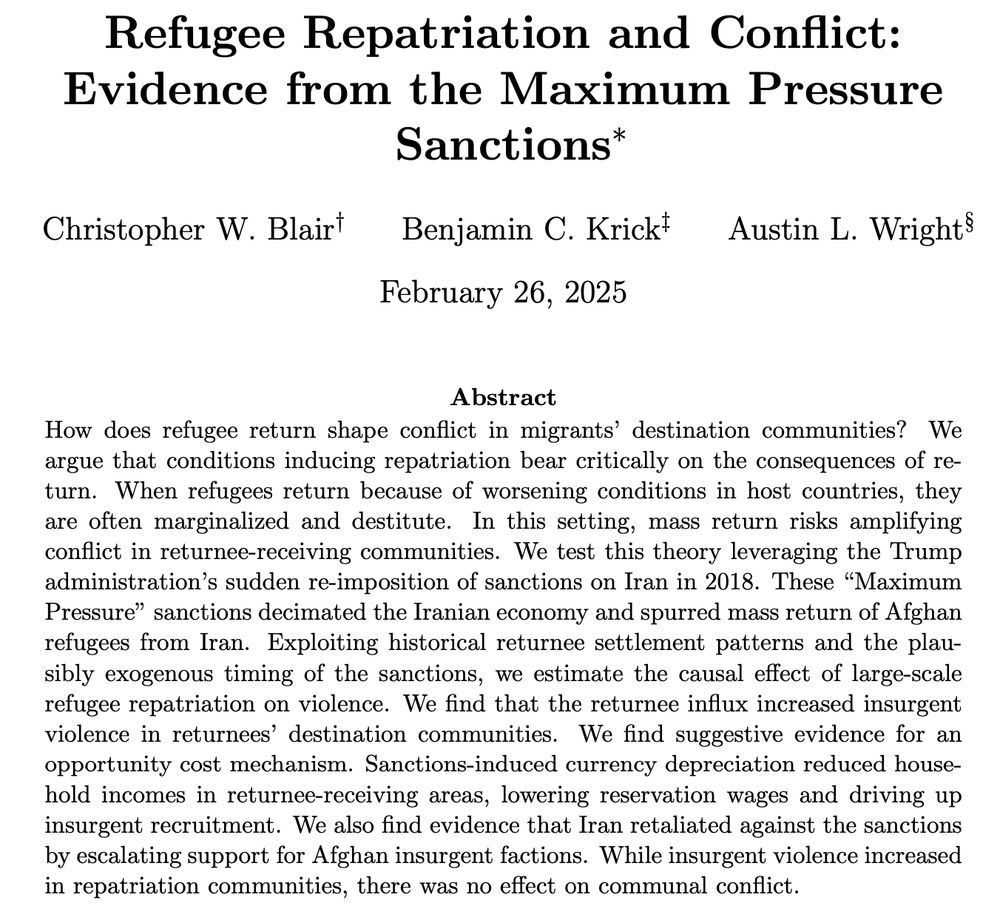
esoc.princeton.edu/wp39
But do effects persist longer than the 4 post-storm weeks our initial survey covered? A 6-month follow-up survey reveals no long-run impacts.


But do effects persist longer than the 4 post-storm weeks our initial survey covered? A 6-month follow-up survey reveals no long-run impacts.



